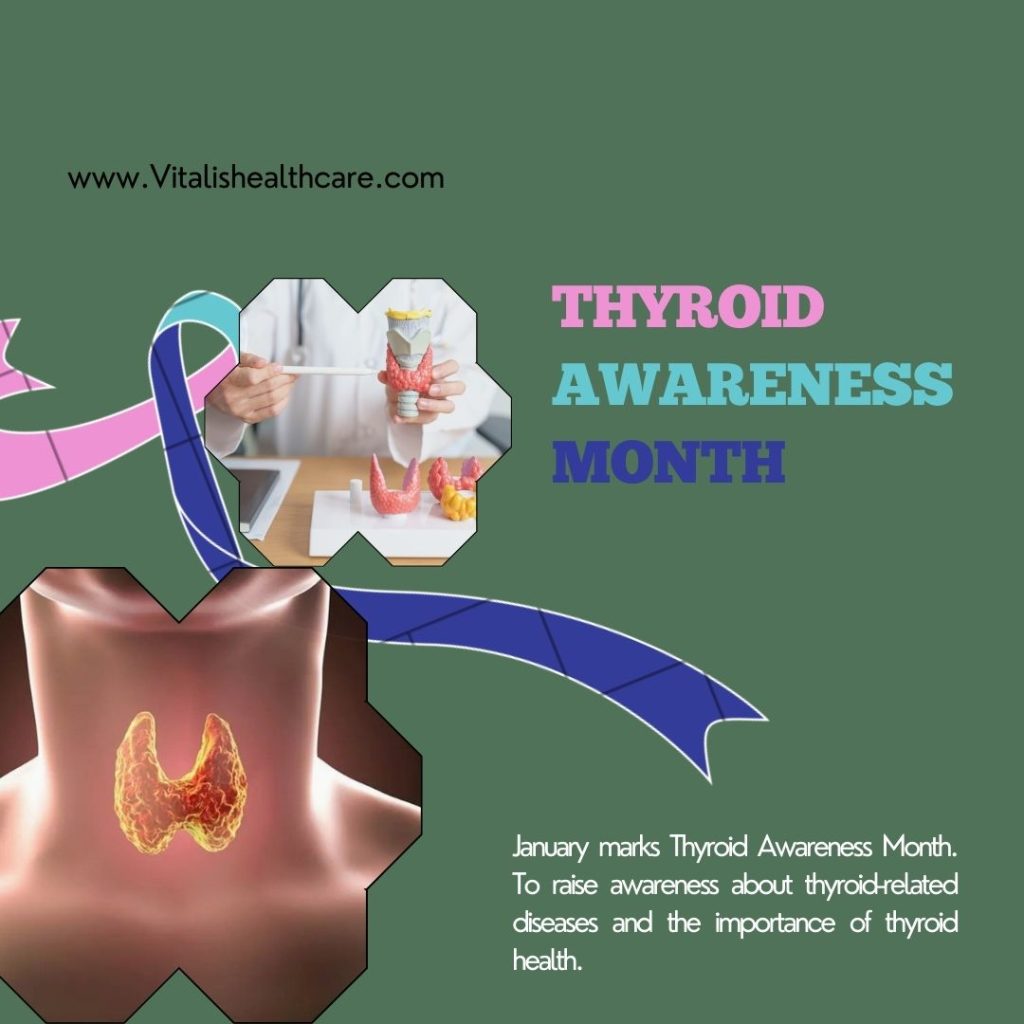Every year, millions of seniors experience unexplained changes in their health. The disease is also more common among people older than age 60. From sudden weight gain to persistent fatigue, these symptoms can be easily dismissed. However, they might be warning signs of a thyroid condition that needs serious attention.
The thyroid’s main job in the body is to control the speed of your metabolism (metabolic rate). This is the process of how your body transforms the food you consume into energy. All the cells in your body need energy to function. When your thyroid isn’t working properly, it can impact the entire body.
Types Of Thyroid Disease
Thyroid disease is a general term for a medical condition that keeps your thyroid from making the right amount of hormones and if affects people of all ages. There are two major types of thyroid disease and they are: i) Hypothyroidism (under active thyroid) and ii) Hyperthyroidism (over active thyroid).
- Hypothyroidism: Women are much more likely than men to develop hypothyroidism. Less often, hypothyroidism is caused by too much or too little iodine in the diet. Also called underactive thyroid, it is when the thyroid gland doesn’t make enough thyroid hormones to meet your body’s needs. Thyroid hormones control the way your body uses energy, so they affect nearly every organ in your body, even the way your heart beats. Without enough thyroid hormones, many of your body’s functions slow down.
You are more likely to have hypothyroidism if you:
- had a thyroid problem before, such as a goiter
- had surgery or radioactive iodine to correct a thyroid problem
- received radiation treatment to the thyroid, neck, or chest
- have a family history of thyroid disease
- were pregnant in the past 6 months
Hypothyroidism has several causes, which includes;
- Hashimoto’s disease
- thyroiditis, or inflammation of the thyroid
- surgical removal of part or all of the thyroid
- radiation treatment of the thyroid
- some medicines
Some common symptoms of hypothyroidism include:
- fatigue
- weight gain
- trouble tolerating cold
- joint and muscle pain
- dry skin or dry, thinning hair
- heavy or irregular menstrual periods or fertility problems
- slowed heart rate
- depression
- Hyperthyroidism: Hyperthyroidism is a condition in which the thyroid gland makes too much thyroid hormone. The condition is often called overactive thyroid. Hyperthyroidism, can be caused by a number of conditions, including:
- Graves’ disease: An autoimmune disease that causes the immune system to attack the thyroid, leading to excess thyroid hormone production. It’s the most common cause of hyperthyroidism.
- Thyroiditis: Inflammation of the thyroid gland.
- Overactive thyroid nodules
- Consuming too much iodine
- Taking too much thyroid hormone medicine.
Symptoms of hyperthyroidism include:
- Irritability
- Sweating more than normal
- Thinning of the skin
- Weak muscles
- Shaky hands.
When Seniors Should Seek Help For Thyroid Disease
Seniors may experience symptoms of thyroid disease differently than younger individuals due to age-related changes in the body. Seniors or their caregivers should seek medical advice on thyroid symptoms when they notice the following:
- Persistent fatigue that doesn’t improve with rest.
- Noticeable weight changes, either loss or gain, without changes in diet or activity levels.
- Mood swings or significant changes in mental health, such as increased anxiety or depression.
- Changes in sleep patterns, like insomnia or excessive daytime sleepiness.
- Physical symptoms such as hair loss, dry skin, or sensitivity to cold or heat.
If these symptoms last for several weeks or significantly impact daily life, it’s important to consult a healthcare professional for evaluation and possible testing.
Early detection and treatment can greatly improve outcomes for thyroid-related issues. Thyroid awareness among caregivers and family members is vital because they play a key role in monitoring the health of seniors. Understanding the symptoms of thyroid disease can help caregivers identify potential issues early on, leading to prompt medical evaluation and treatment.
We, at Vitalis healthcare, encourage seniors to consider our services. Reach out to us if you or your loved one is experiencing thyroid disease. We are here to offer our personalized care and support by managing your symptoms, regular check ups and giving tailored advice on how to manage thyroid health and your overall well being. Contact us today!
Phone Number: 240.716.6874
Email: info@vitalishealthcare.com
Location: We provide our services in every county in the State of Maryland, United States of America.
Office Address: 8757 Georgia Avenue Suite 440 Silver Spring, MD 20910


